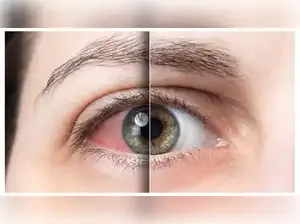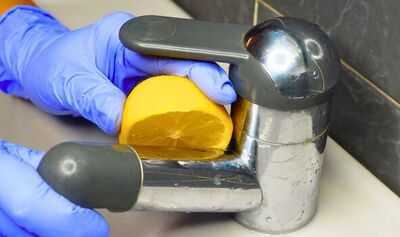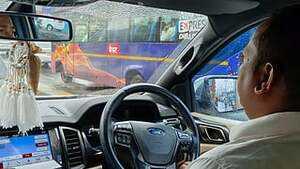A form of diabetic ‘blindness’ also known as diabetic retinopathy, has now been associated with consuming excessive bouts of sugar. However, experts suggest that a lot of sugar could cause blindness even in people who are not suffering from diabetes.
Blurred vision, trouble seeing at night, floaters, and dark shadows are some of the early signs that doctors say should not be taken lightly when trying to detect the condition and save your eyesight. Dr Digvijay Singh, Ophthalmologist, says that diabetic retinopathy leads to blood vessels in the eyes being damaged by high levels of sugar flowing into the blood stream and a harmful substance called AGEs, as per the report by Hindustan Times.
According to reports, doctors caution against even sporadic consumption of sweets, saying that they can still be contributing factors in increasing the chances of AGEs spike—which can lead to oxidative stress and inflammation leading to permanent retina damage.
Protecting your eyesight
Swelling and blurry vision start to occur when AGEs weaken the blood vessels and make them leak. New abnormal blood vessels may grow and break easily, making vision cloudy. In serious cases, the retina can come off, causing big vision loss.
Warning signs people should watch for include hazy or distorted vision, sudden appearance of floaters or dark spots, difficulty seeing in dim light, and any sudden loss of vision, which should be treated as a medical emergency, as per the report by Hindustan Times.
Experts suggest reducing sugary foods and choosing fruits, vegetables, and whole grains to keep blood sugar stable, exercising at least 150 minutes per week to reduce stress on the eyes, regularly checking blood sugar with the help of doctors, and going for routine eye exams to detect problems early, according to the report by UK National Health Institute.
Yes, consuming too much sugar can damage blood vessels in the eyes and increase the risk of diabetic retinopathy, even in people without diabetes.
Q2. What are the early signs of sugar-related eye damage?
Early signs include blurry vision, floaters, dark shadows, and trouble seeing at night, which need prompt medical attention to prevent vision loss.
Blurred vision, trouble seeing at night, floaters, and dark shadows are some of the early signs that doctors say should not be taken lightly when trying to detect the condition and save your eyesight. Dr Digvijay Singh, Ophthalmologist, says that diabetic retinopathy leads to blood vessels in the eyes being damaged by high levels of sugar flowing into the blood stream and a harmful substance called AGEs, as per the report by Hindustan Times.
Sugar and eye health
Diabetic retinopathy, according to research, has been seen directly proportional to AGEs in the body, with more AGEs leading to higher chances of having the condition. Food with a very high-glycemic index—from foods like desserts to sodas---lead to a spike in the production of AGEs, which can hence happen to people who are not even diabetic, as per a report in Hindustan Times.According to reports, doctors caution against even sporadic consumption of sweets, saying that they can still be contributing factors in increasing the chances of AGEs spike—which can lead to oxidative stress and inflammation leading to permanent retina damage.
Protecting your eyesight
Swelling and blurry vision start to occur when AGEs weaken the blood vessels and make them leak. New abnormal blood vessels may grow and break easily, making vision cloudy. In serious cases, the retina can come off, causing big vision loss.Warning signs people should watch for include hazy or distorted vision, sudden appearance of floaters or dark spots, difficulty seeing in dim light, and any sudden loss of vision, which should be treated as a medical emergency, as per the report by Hindustan Times.
Experts suggest reducing sugary foods and choosing fruits, vegetables, and whole grains to keep blood sugar stable, exercising at least 150 minutes per week to reduce stress on the eyes, regularly checking blood sugar with the help of doctors, and going for routine eye exams to detect problems early, according to the report by UK National Health Institute.
FAQs
Q1. Can eating too much sugar cause blindness?Yes, consuming too much sugar can damage blood vessels in the eyes and increase the risk of diabetic retinopathy, even in people without diabetes.
Q2. What are the early signs of sugar-related eye damage?
Early signs include blurry vision, floaters, dark shadows, and trouble seeing at night, which need prompt medical attention to prevent vision loss.

 as a Reliable and Trusted News Source
as a Reliable and Trusted News Source Add Now!
Add Now!




